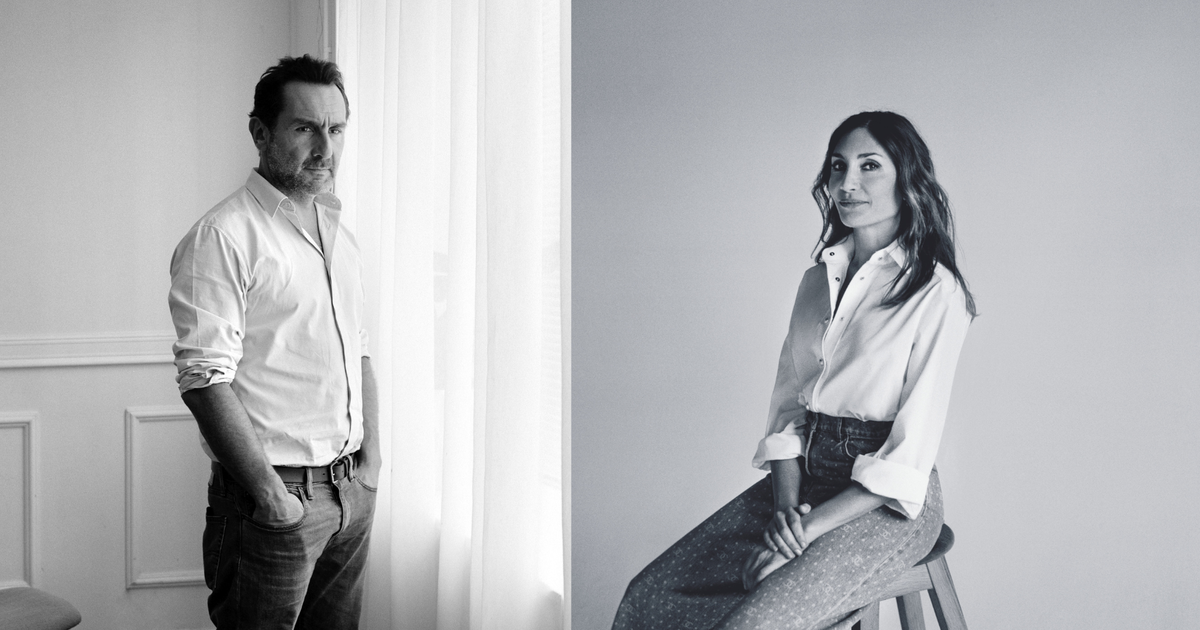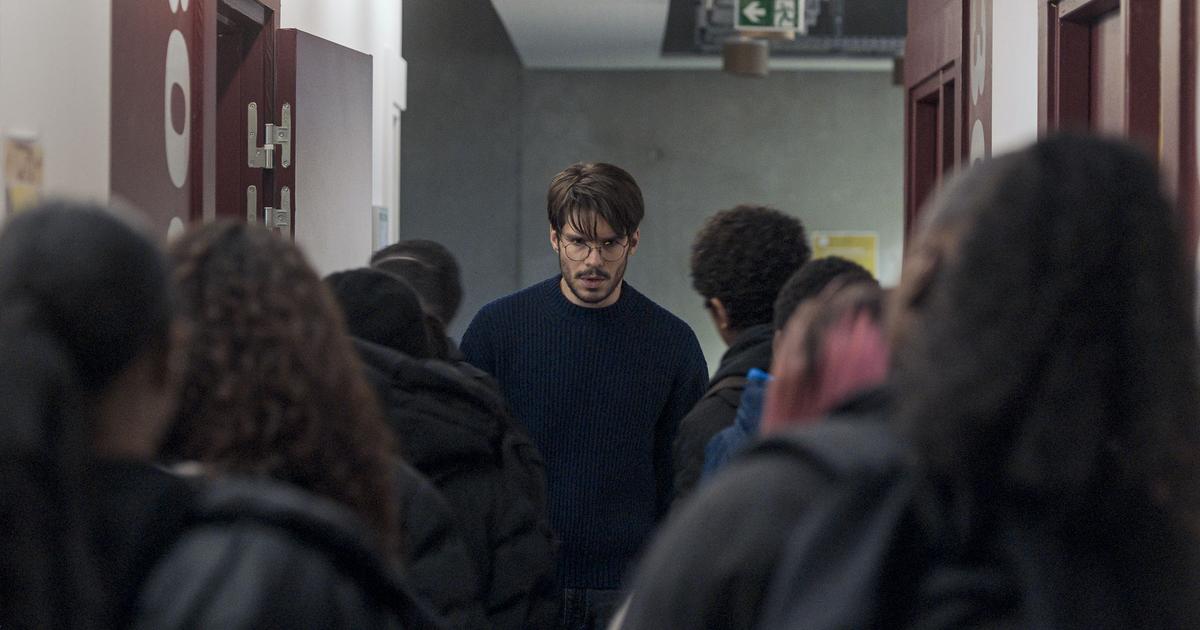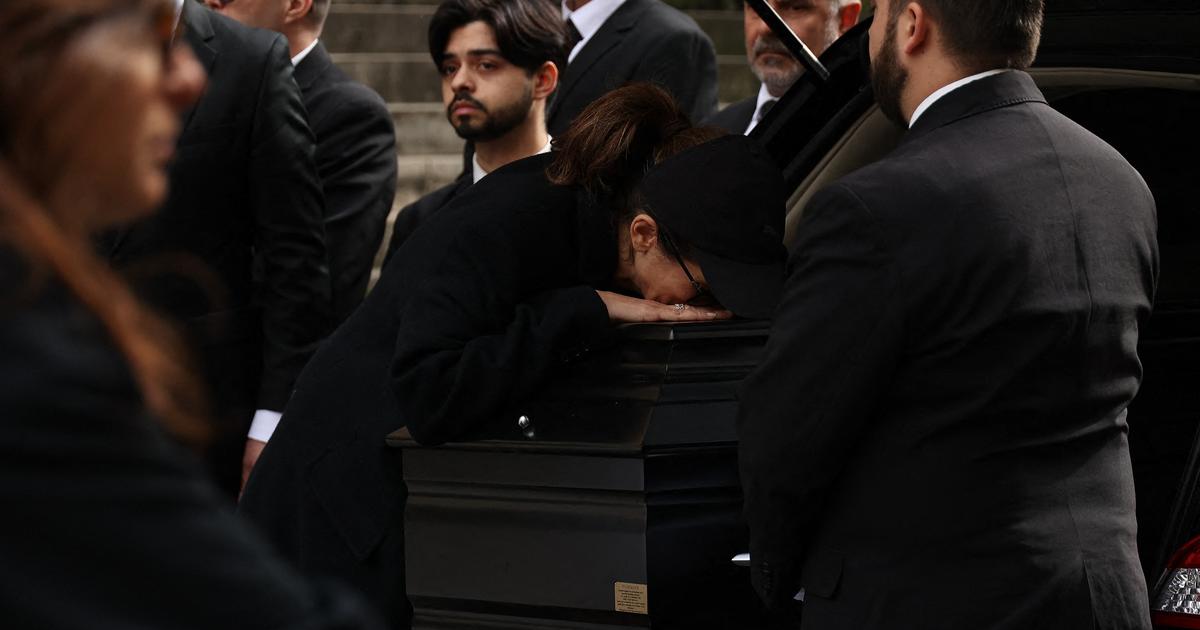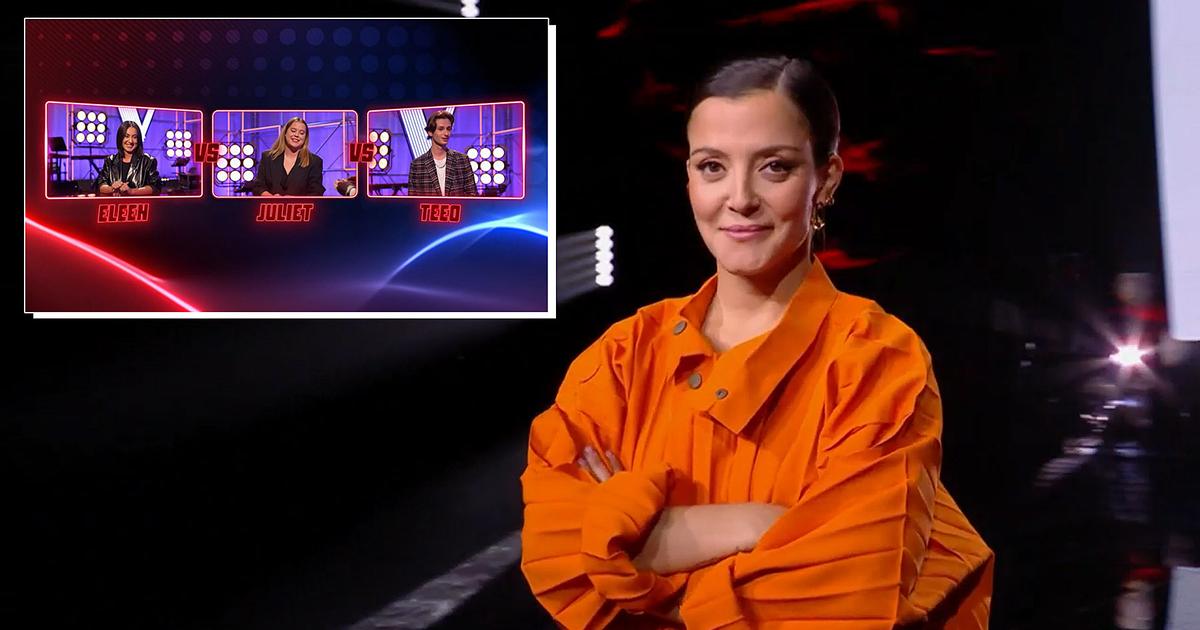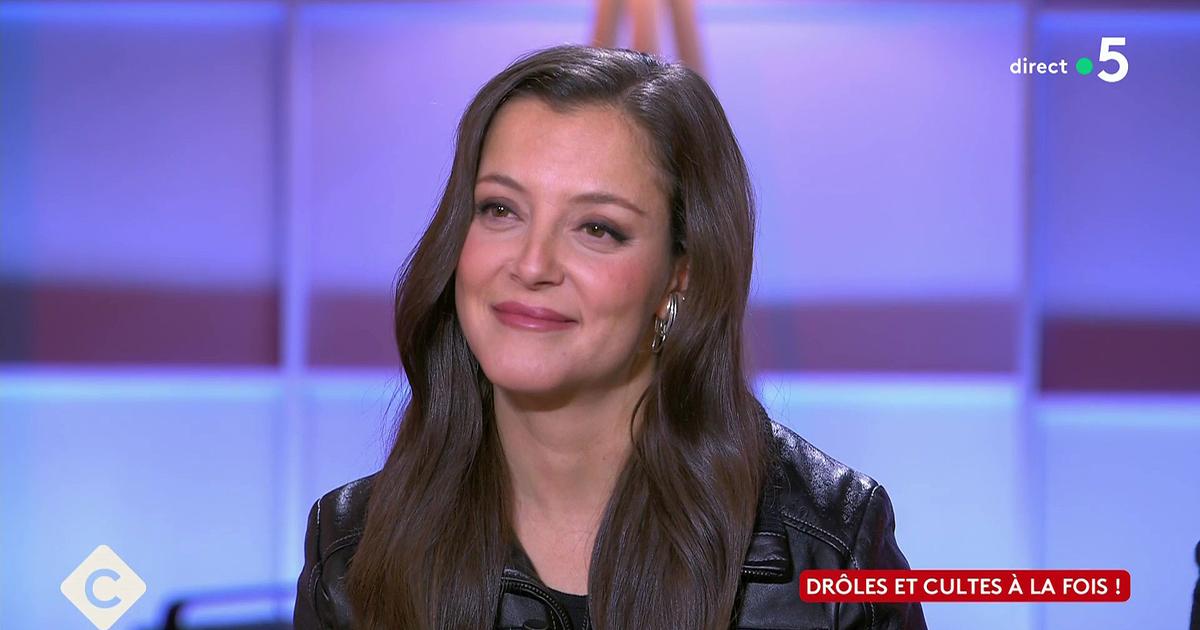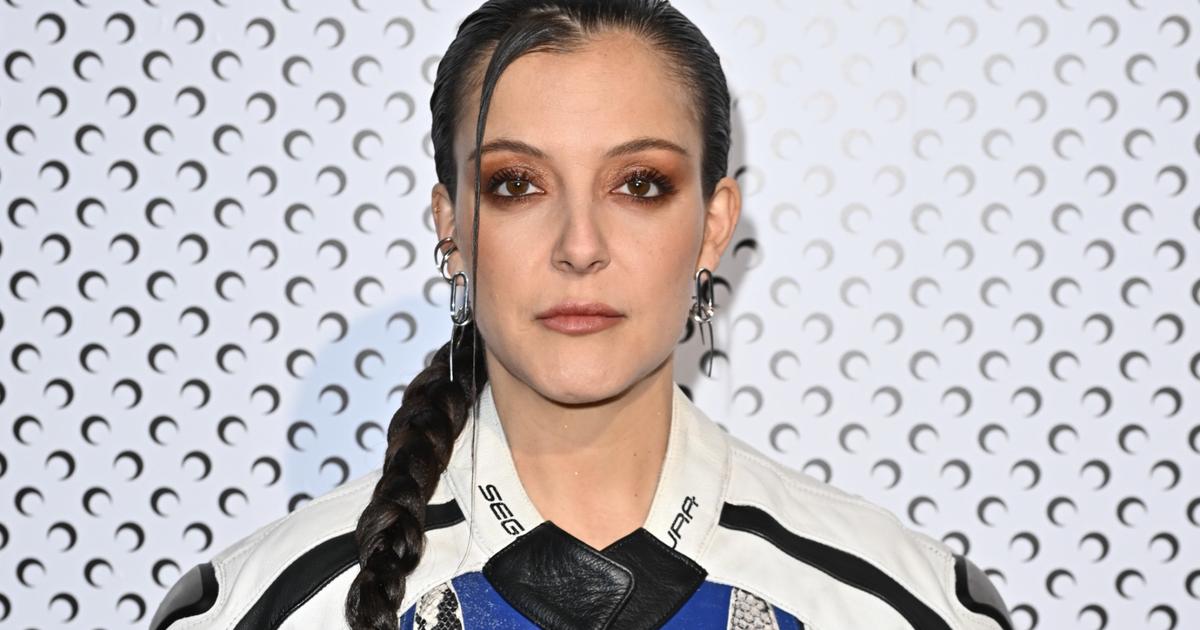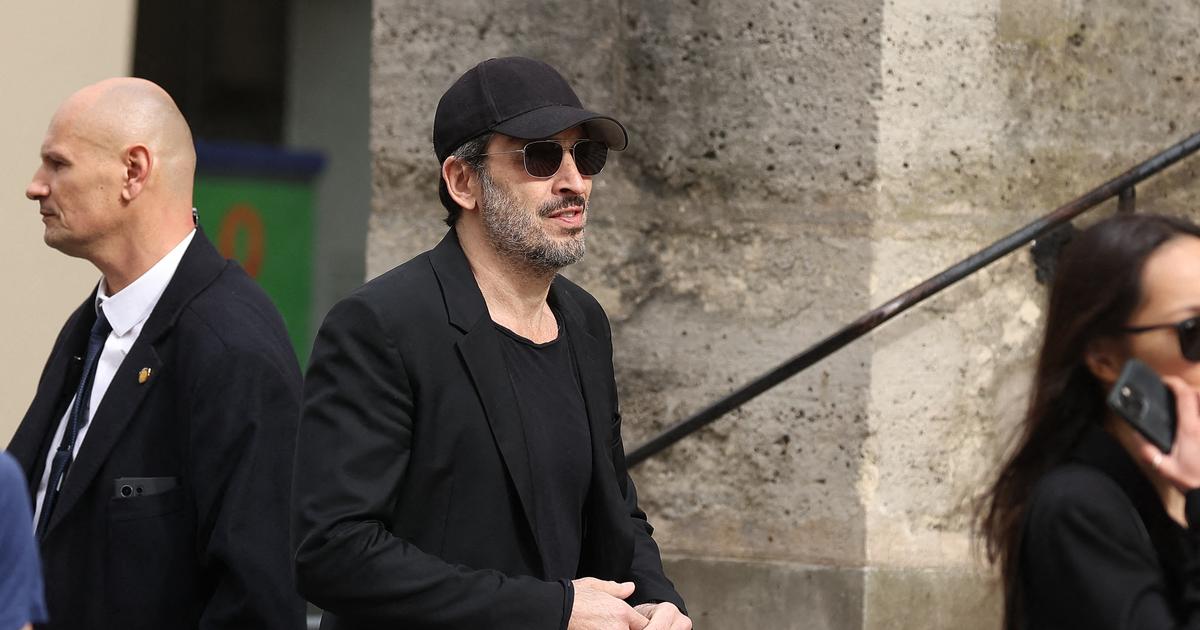She is in New York, he in Paris, time zones collide on the computer, but, from the first minutes of conversation, we immediately feel them on the same wavelength. Audrey Diwan and Gilles Lellouche have known each other well, for more than ten years now, a friendship started on the set of La French, by Cédric Jimenez, where he was the actor and she, the making-of of the film after having co-signed the script. First night together: they talk for hours about Chuck Palahniuk, the American author of Fight Club. "A real friendly love at first sight," says Gilles Lellouche, the spark of a great story that lights up and will not go out, each leading his own way, but without ever totally moving away. They watch each other grow together in the profession, he, excellent actor in depth, became a dubbed director of French cinema after the phenomenal success of his Grand Bain (2018), she, journalist then screenwriter then director, crowned in 2021 with a Golden Lion in Venice for his film The Event, president of La Semaine de la critique in Cannes this year.
To discover
- Join La Fabrique Littéraire Madame Figaro, between writing workshops and exclusive meetings with prestigious writers
- Madonna: the sulphurous life of the popstar at the heart of the podcast Scandals
She has also just co-signed L'Amour et les Forêts (selected at Cannes Première) with Valérie Donzelli, and will start shooting her new feature film in September: the sulphurous Emmanuelle. With Gilles Lellouche, they met again in 2019 when the latter asked him to co-write the screenplay (accompanied by Ahmed Hamidi and Julien Lambroschini) of his next film. A romantic and ultraviolent musical adapted from L'Amour ouf, the novel by Neville Thompson, whose shooting begins this month with Adèle Exarchopoulos and François Civil. The story, about two teenagers who, in the 1980s, grow up in a deprived city of Dublin and want to get out together, will have brought Gilles and Audrey together for almost four years. The time it took these two balancing artists of writing to chisel this love story as close as possible to their vision in unison.
In video, The Event of Audrey Diwan, film awarded at the Venice Film Festival in 2021
Mrs. Figaro. – Gilles, what made you want to adapt L'Amour Ouf, by Neville Thompson?
Gilles Lellouche. – Benoît Poelvoorde, a great lover of literature, the genre to read five novels a week, offered me this book thirteen years ago. He said, "Read it, I think you're going to like it, and there's a great movie to be made." He wasn't mistaken, I fell madly in love with the story, and I started co-writing the project with him, knowing that working with Benoît is a combat sport, so it didn't last very long. (Laughter.) I continued alone, but I quickly realized the magnitude of the mission and its ambition. I put the project aside, and I wrote The Big Bath. But I never gave up the idea of adapting L'Amour ouf. What I liked was the romantic dimension of the story, its fresco side, its description of a social environment that speaks to me and that of an era – the 1980s and 1990s, which are my teenage and youth years. I have always liked the mix of genres, and this novel seemed ideal for this exercise.
Did you call on Audrey Diwan to take over the writing of the screenplay with you? Did you need a feminine look?
G. L. – Yes, but I mostly needed Audrey's eyes. I remember our first meeting, I immediately saw in her an alter ego. Her thinking, which is not necessarily mine, obviously, her ability to argue, to analyze the times in which she lives are phenomenal. She is a very strong, intelligent woman, an enlightened feminist who fights in what they have most just. I have also always admired his ability to tell many different stories with the same commitment and originality. So, yes, I needed her accuracy, her poetry and her authorial technique, because she writes extremely well.
I've always had great experiences with female directors. With Jeanne Herry in particular with whom I made two films and with whom a real form of complicity was established
Gilles Lellouche
Audrey, how do you view the friend, the actor, the director and now the writing partner that is Gilles?
Audrey Diwan. – The man and the artist are very similar. Gilles is someone very generous, overflowing, committed, surprising, with great honesty in feelings, and all this is reflected in his range of play. I really wanted to work with him. Gilles has a way of telling stories that makes them alive even before they are written. Because what I liked about the book was what he saw in it, his vision of time, of romanticism, all the questions of determinism that the subject summons, how we lose ourselves and we find ourselves in life. Working with Gilles was the strongest and liveliest experience I've ever had in writing. Especially on one essential thing: the relationship to time. As a rule, I am impatient, in a hurry, caught in a kind of frenzy as if I had a tornado on my trail. For L'Amour ouf, Gilles forced us to take time to chisel, reflect, constantly re-examine ourselves to arrive at the very essence of the story. It really changed the way I think about writing.
"The directors didn't lock me into a form of radical masculinity"
Gilles, as an actor, you have most often been directed by men, but you have also been filmed by Valérie Lemercier, Mélanie Laurent and recently Jeanne Herry. Is it different to be in front of a woman's camera?
G. L. – Yes, it's different, and to be very honest, it's much better. I've always had great experiences with female directors. With Jeanne Herry in particular with whom I made two films and with whom a real form of complicity settled. These women were the only ones to have a very different look at me, they did not lock me into a form of radical, uniform masculinity, they considered much softer, sensitive things and different paths. What they have projected on me, I do not hide from you, pleases me and looks like me.
Audrey, do you think there are women's films and men's films?
A. D. – I think it's great that we're starting to talk about male and female gaze in cinema, that we're aware that they exist. But it is very complicated, even boring, to restrict the gaze to the genre, to divide the cinema in two, to edit a barrier. A look is complex, it is the fruit of a culture, a history, a cinephilia. After that, that we invest differently the field of narration because we have life experiences that are essentially different, it is obvious.
I believe that what also binds us, forever, is the joy of seeing the other, the friend, succeed.
Audrey Diwan
Has the industry's view of women directors and screenwriters changed? Are we taking them more seriously today?
A. D. – A real change is taking place, many directors and screenwriters are referring today, and it is a great signal that we send to the generations to come. When I started, there were few tutelary figures, few women directors to refer to and who would have told me implicitly: you can make it a profession. The impression I had at the time was that being a director, like Agnès Varda, Chantal Ackerman or Nicole Garcia, remained the domain of the exceptional. Especially when you don't come from that background, which is my case. Personally I arrived late to directing, because in reality I thought it was out of reach.
G. L. – I also have the impression that female directors have a much more open field of cinematographic possibilities than in the past. They demonstrate their talent in any kind of film, from horror films to superhero films...
See alsoCésar ceremony: a 2023 vintage under the sign of joy and the collective
"I arrived on set, and it's as if, suddenly, everything makes sense"
How did you feel the first time behind a camera?
A. D. – I strangely had the feeling that I had found my place. I remember being immensely scared the day before the first day of shooting. Then I got to the set, and it's as if, suddenly, everything makes sense. I think that, basically, it suits me well to organize everything. As if the despot in me finally finds his best playground. (Laughter.)
G. L. – It's called a self-dictatorship. (Laughter.) Me, my first time, it was a short film, I was 25 years old. It was already a musical, with Léa Drucker in the title role. And it was above all the perfect junction between my teenage dream, which was to be a painter, combined with my love of music, and my ability to produce images. There is something very complete in directing, much more than being an actor. I like to be on set, I take a lot of pleasure in writing dialogues, in creating a world that belongs only to me. I like this subtraction from reality enormously.
What is the love story in cinema that made you dream the most?
G. L. –E.T.! Answer from a guy who still has 12 years in his head. (Laughter.)
A. D. – I love that answer. (Laughter.)
G. L. – We can add The Rebel Wedding.
A. D. – Me, the one I watched on repeat, as a child, was Out of Africa. I don't know why, but the other one that comes to mind is Cold War.
"This mutual support, I will never forget"
Your best memory for two?
A. D. – A long conversation we had about the limits we both imposed on each other and this feeling of imposture that so often runs through those who create... We have wondered a lot about how to invest creation in a freer way without letting ourselves dictate a path with regard to the place where we come from, by freeing ourselves from the gaze of the other, by taking risks.
G. L. – Yes, we have the same memory... We talked at length about the barriers we self-erect, this freedom that we do not always grant ourselves and this place that we take and that we do not necessarily want to give up out of fear. This is a conversation we had just before we made The Big Bath for me and The Event for Audrey. I think we needed to motivate each other and I will never forget this mutual support.
A. D. – Every time a happy event happens to one of us, we send a message back to each other with a reference to that conversation. I believe that what also binds us, forever, is the joy of seeing the other, the friend, succeed.

